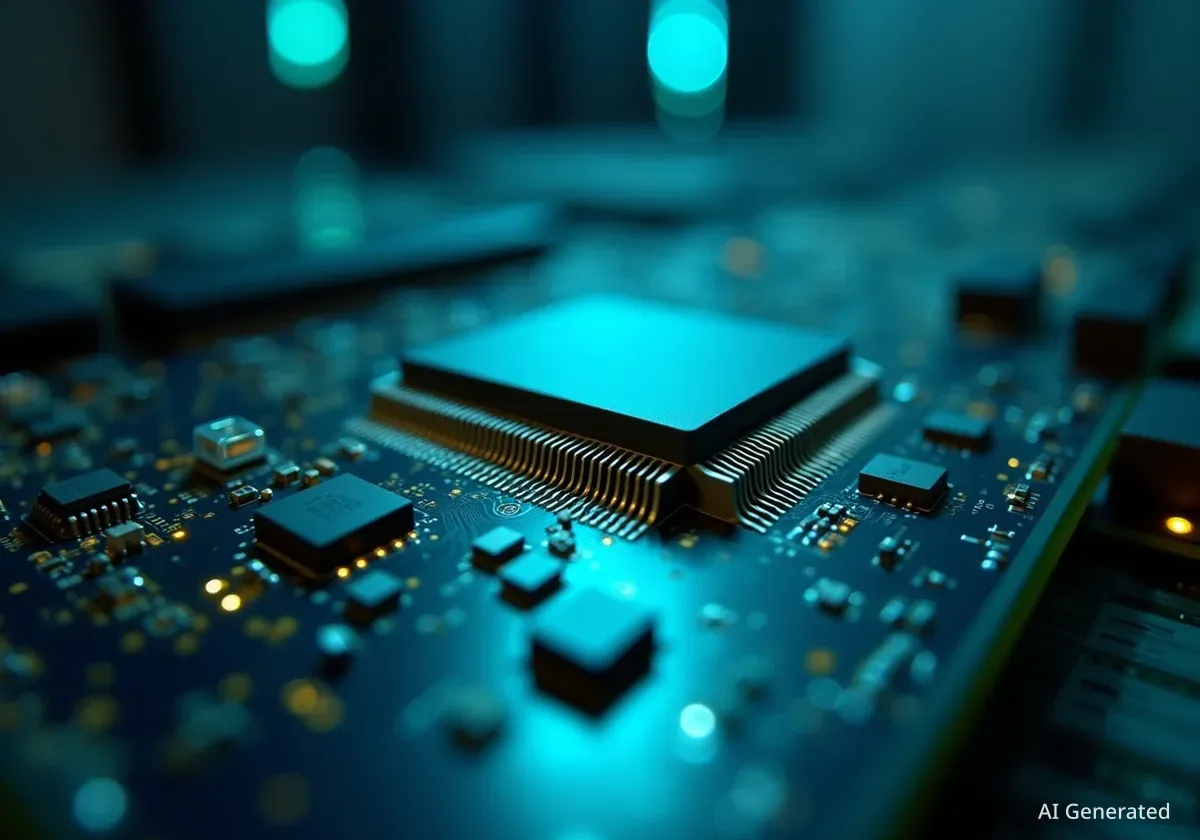Alibaba's semiconductor division, T-Head, has introduced a new artificial intelligence processor that is being positioned as a direct competitor to Nvidia's H20 graphics processing unit. The new chip was featured in a demonstration on state-run China Central Television, where its performance was shown to be comparable to the Nvidia product designed specifically for the Chinese market.
The demonstration took place during a broadcast covering Premier Li Qiang’s visit to a major computing center operated by China Unicom. The event highlights China's ongoing efforts to develop domestic high-performance computing hardware in response to international trade restrictions.
Key Takeaways
- Alibaba's T-Head unit has developed a new AI accelerator, referred to as a PPU.
- A state television broadcast claimed the chip's performance matches Nvidia's H20 GPU.
- State-owned telecommunications firm China Unicom has already deployed over 16,000 of these new Alibaba chips.
- The development is part of China's broader strategy to achieve self-sufficiency in semiconductor technology amid U.S. export controls.
- Key details about the testing methods and software support for the new chip have not been publicly released.
State-Backed Demonstration Unveiled
The new AI accelerator from Alibaba's T-Head was showcased during a September 16 broadcast on China Central Television (CCTV). The segment covered a visit by Premier Li Qiang to the Sanjiangyuan Energy Intelligent Computing Centre in Qinghai province, a facility managed by China Unicom.
During the broadcast, a chart was displayed that directly compared T-Head's new processor with several other high-performance chips. These included Nvidia's H20 and A800 GPUs, as well as Huawei's Ascend 910B. The visual presentation suggested that the performance of Alibaba's chip was on par with the Nvidia H20.
Technical Specifications Revealed
According to information shown on-screen during the broadcast, the new chip is an Application-Specific Integrated Circuit (ASIC) designed specifically for AI tasks. Its technical specifications include:
- Memory: 96 GB of HBM2e
- Interconnect Speed: 700 GB/s chip-to-chip
- Interface: Support for PCIe
- Power Consumption: 400 W board power
Understanding the Nvidia H20
The Nvidia H20 is a specialized GPU developed for the Chinese market. It was designed to comply with U.S. export controls that restrict the sale of high-performance semiconductor technology to China. While based on Nvidia's powerful Hopper architecture, it has been modified to meet regulatory limits, making it less powerful than Nvidia's top-tier global products.
Large-Scale Deployment Already Underway
The CCTV report revealed that the new Alibaba processor is not just a prototype. According to news agency Reuters, China Unicom has already installed 16,384 of these T-Head PPU cards within its computing infrastructure. This represents a significant commitment to the new domestic hardware.
The deployment at the Qinghai facility makes up more than half of the nearly 23,000 domestically produced accelerators currently in operation there. This initial installation already provides substantial computing power for the center.
Computing Power by the Numbers
The existing deployment of Alibaba's PPU cards at the China Unicom facility delivers a reported 3,579 petaflops of computing performance. The center has plans to expand its total capacity to more than 20,000 petaflops as it becomes fully operational.
Geopolitical and Technological Context
The public unveiling of Alibaba's PPU is deeply connected to the broader geopolitical landscape. The United States has implemented strict export controls to limit China's access to advanced semiconductor technology, which is crucial for developing artificial intelligence and other strategic industries.
These restrictions prompted companies like Nvidia to create modified products, such as the H20, specifically for the Chinese market. In response, Chinese technology companies and the government have accelerated efforts to build a self-reliant domestic semiconductor industry. This demonstration serves as a public declaration of progress toward that goal.
"This isn’t just a demonstration—it’s a declaration. With massive state-backed deployment, rapid iteration, and a total commitment to technological sovereignty, China isn’t playing for parity—it’s racing toward dominance."
Unanswered Questions Remain
While the hardware specifications and performance claims are notable, critical information about the new chip is still missing. The broadcast did not provide any details about the specific benchmarks or testing methodologies used to compare the PPU against Nvidia's hardware. Without independent, third-party verification, the performance claims remain unconfirmed.
Furthermore, the software ecosystem is a major factor in the success of any AI accelerator. The usability of a chip depends heavily on its supporting software frameworks, development toolchains, and compatibility with existing AI models. Alibaba has not yet released information about the software support for its PPU. Nvidia's dominance in the AI market is largely due to its mature and widely adopted CUDA software platform.
Until more details are available and independent benchmarks are conducted, the true capabilities of Alibaba's new chip and its ability to compete effectively with established players like Nvidia remain an open question. The announcement is a significant statement of intent, but its practical impact on the global AI hardware market is yet to be determined.





